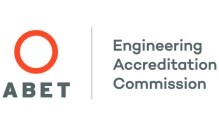Overview
Bachelor of Science in Biomedical Engineering
The Department of Biomedical Engineering offers a BS in Biomedical Engineering. Biomedical engineers combine the problem solving ability of engineers with the knowledge of the biological and medical fields to develop new solutions for improving human health, healthcare, and quality of life for all people. Biomedical engineers work in research and development, product design, manufacturing, operations, service, technical sales and marketing, consulting, education, and environmental problem solving.
The undergraduate program provides the scope of knowledge and training for employment in the field and also forms the basis for further study at the graduate level. The curriculum emphasizes four main areas (Imaging, Tissue Engineering, Sensor Materials and Devices, and Computation), and allows for students to obtain depth in areas of their choice through technical electives. The Department of Biomedical Engineering brings together faculty members from many disciplines to provide an education that will enable our graduates to succeed.
The program is designed to serve you whether you plan to enter industry directly after earning your degree or if you plan to continue their education through formal graduate study, including medical school.
The Biomedical Engineering BS program is accredited by the Engineering Accreditation Commission of ABET

Program educational objectives (PEOs) are broad statements that describe what graduates are expected to attain within a few years after graduation. The program educational objectives of the biomedical engineering program are that:
- Graduates will use their scientific, technical, and communication skills to contribute to the achievement of the goals and objectives of employers of biomedical engineers.
- Graduates will continue their professional development in biomedical engineering or medicine, including professional licensure, continuing education, and/or graduate study.
Students graduating with a Bachelor of Science degree in Biomedical Engineering from UB will possess:
- An ability to identify, formulate, and solve complex engineering problems by applying principles of engineering, science, and mathematics.
- An ability to apply engineering design to produce solutions that meet specified needs with consideration of public health, safety, and welfare, as well as global, cultural, social, environmental, and economic factors.
- An ability to communicate effectively with a range of audiences.
- An ability to recognize ethical and professional responsibilities in engineering situations and make informed judgments, which must consider the impact of engineering solutions in global, economic, environmental, and societal contexts.
- An ability to function effectively on a team whose members together provide leadership, create a collaborative and inclusive environment, establish goals, plan tasks, and meet objectives.
- An ability to develop and conduct appropriate experimentation, analyze and interpret data, and use engineering judgment to draw conclusions.
- An ability to acquire and apply new knowledge as needed, using appropriate learning strategies.
The Biomedical Engineering BS Program has 332 students enrolled as of Fall 2019. We conferred 69 degrees in the 2018/19 academic year. See a complete list of all of UB Engineering Enrollment and Graduation Data.